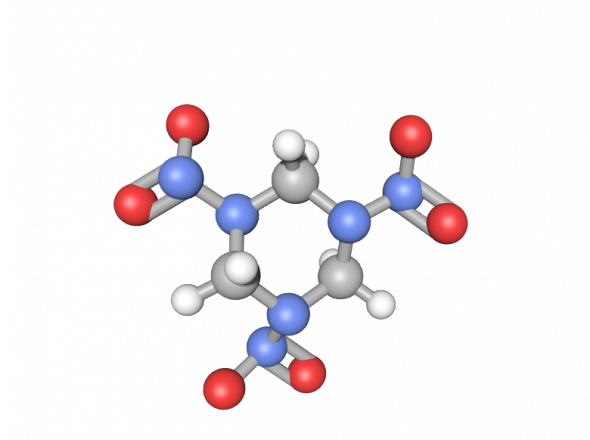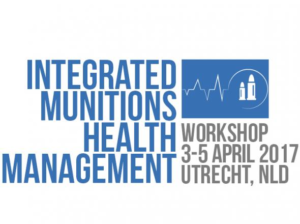
Integrated Munitions Health Management

On behalf of the CNAD Ammunition Safety Group, the NATO Munitions Safety Information Analysis Centre (MSIAC) and the UK Defence Ordnance Safety Group (DOSG) are pleased to announce a workshop to establish the scope for the NATO Smart Defence Initiative (SDI) on Integrated Munitions Health Management (IMHM).
The primary goal of the IMHM Smart Defence Initiative (2.102) is to provide a definitive guide to the intelligent management of munitions’ health. This process requires that Nations’ representatives develop a scope for the guide that will ensure that the standard is aligned with technology development, fits with acquisition requirements, facilitates logistics, and increases the availability of the Alliance’s capabilities in the long term. To that end, this workshop will begin the process of defining the scope for the IMHM SDI and establish a structure to produce a sensible guide to foster implementation of IMHM capabilities. Further workshops will follow to finalize the guide.
Objectives
The aims of the workshop will be:
• To share current practice in munitions health management across the participating nations
• Identify national interests and commitment of support to the SDI
• To agree the detailed SDI goals and plan the work required to achieve these goals
• To identify the common areas that require standardization and guidance
Background
Integrated Munitions Health Management (IMHM), often combined with lifecycle management is receiving increasing attention in several NATO countries. It has been addressed by several activities within the NATO Collaboration Support Office and the Applied Vehicle Technology (AVT) Panel. The importance of IMHM has been recognized by the AVT Strategic Committee, which included this topic in its guidance for action to the AVT Technical Committees.
The Smart Defence Initiative is a result of successful cooperation activities of the United Kingdom, Canada, France, Germany, the Netherlands and the United States (Cooperative Demonstration of Technology, AVT-212). The SDI will seek to consolidate the needs of the contributory / involved nations along the structure of a NATO STANAG, and produce a guide to IMHM that will assist all nations in the development and deployment of these technologies in existing and future munition systems.
Output
It is expected that the output of this workshop will be:
• A thorough understanding of the scope for the SDI,
• To establish that the product that will result from the SDI (the IMHM Guide) fits in line with best practice, takes account of acquisition and logistics requirements and constraints, and is congruent with developments in technology,
• To capture national requirements and concerns,
• To develop a more detailed development plan, define participant nations’ roles, and assign tasks
An interim report will be issued compiling the discussions of the Workshop and any presentations given.
Meeting date
3 to 5 April 2017 (the week of the AC/326 SG/B meeting (6-7 April))
Meeting location
Kromhout Kazerne in Utrecht (Netherlands), at the same location of the SG/B meeting.
Limitations / Classification
The meeting is open to government representatives of NATO nations and MSIAC member nations. The discussions will be at the NATO Unclassified level, and releasable to Australia, Finland and Sweden. If needed, a NATO-only session can be arranged.
We expect the following countries to attend and contribute (based on the Smart Defence commitment and interest expressed in the area): Australia, Belgium, Canada, Denmark, France, Germany, Netherlands, Norway, Spain, Sweden, Turkey, UK and the USA. We also expect contribution from MSIAC and the NATO International Military Staff. Of course, other nations and organisations are warmly invited to attend and contribute.
We wish to attract all the functions involved in or impacted by the IMHM implementation:
• Acquisition manager
• Program manager
• Logisticians (International Military Staff / Logistic committee/ NSPA)
• Weapons manager (IMS)
• Weapons Designers/ Life Modelers
• ISS coordinator
• Safety authority (AC/326 community)
• Security community
The workshop will be held over 3 days. The program and call for paper can be downloaded here. Topics to be covered The following areas have been identified to open discussion for the whole SDI, and are further described in the document: 1. Background on demonstrators programs and use of environmental data loggers in storage and operations 2. Current and future national activities 3. Definitions – terminology (glossary of terms, what do we mean by Health Management, Health Monitoring,…) 4. Cost benefit analysis model and methodology 5. Gathering and transformation of data process 6. Process on life decision: understanding of the current life decision process based on ISS and reflection on the future decision process (Who will be involved, who will make the decision and based on which evidence?) 7. HUMS – EDL – communication and network requirements / system constraints 8. Presentation of the information. Who needs it? Define what is needed for whom. 9. Acquisition and integration strategy 10. Storage requirement / data sensitivity Tentative structure of the 1st workshop Day 1 Opening Remarks UK DOSG and DI: general presentation of the Smart Defence Initiative MSIAC: feedback from the use of data loggers (AREA 1) STO (or MSIAC): summary of available technologies and demonstrators + AVT-212 cooperative demonstration of technologies for IMHM process (AREA 1) Statement of Requirements from all National Representatives (AREA 2): Why the nations are involved? What are the national expectations and requirements? What are the national experiences? Presentations on current national IMHM Topics Day 2 Presentations and discussions on key IMHM Topics: • AREA 9: Acquisition and Integration strategy • AREA 4: Cost Benefit Analysis Models • AREA 6: Life decision process • AREA 8: Presentation of the information Introduction to other areas Day 3 Discussion on what an IMHM guide should look like Discuss common areas of guide Identify work areas and recruit volunteers for future workshops Planning of work streams Wash-up and review of the overall plan.
Individuals should submit abstracts in relation to the areas described in the call for papers no later than the 17th of February 2017. The abstracts should indicate which area(s) is covered by the paper. The abstracts should be sent to the following points of contact at MSIAC, with a copy provided to the AC/326 SG/B national representative where applicable: Wade Babcock: w.babcock@msiac.nato.int ; 0032 2 707 56 36 Emmanuel Schultz: e.schultz@msiac.nato.int ; 0032 2 707 54 47 Download the call for paper here.
Please fill the form before the 28th February 2017 to register for the workshop. Registrants will receive an e-mail to inform them that MSIAC has received their registration. The expected number of participants is around 30, with a maximum of 40 due to room limitations. If numbers demand, the SG/B national representatives will manage their national contribution. Attendees will be informed of the approval of their registration in due time. To access the location, a request for visit is mandatory. It’s your own responsibility to process this request. The Security PoC will be provided upon your approved registration.
The workshop will be held at the Kromhout Kazerne in Utrecht (Netherlands), at the same location of the SG/B meeting. To access the location, a request for visit is mandatory. It’s your own responsibility to process this request. The Security PoC will be provided upon your approved registration. Information of nearby hotels and accommodations will be provided later.
MSIAC reports L192 and L193 are literature that should serve as an introduction to the topics. They can be downloaded via the MSIAC secure website, or provided by MSIAC on request.


